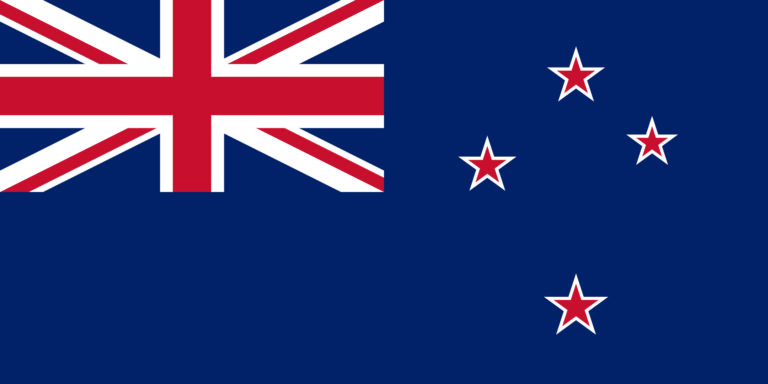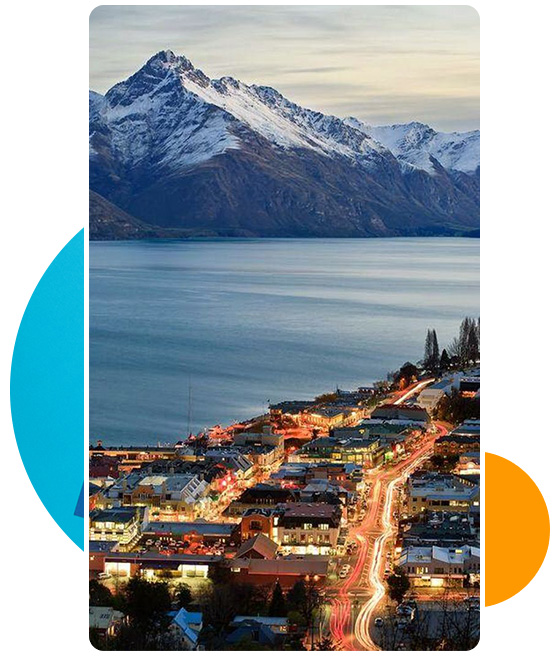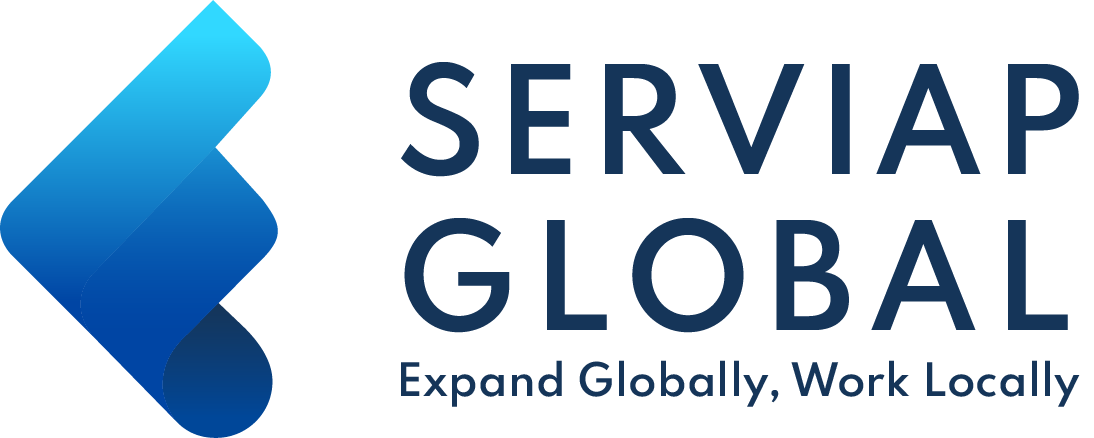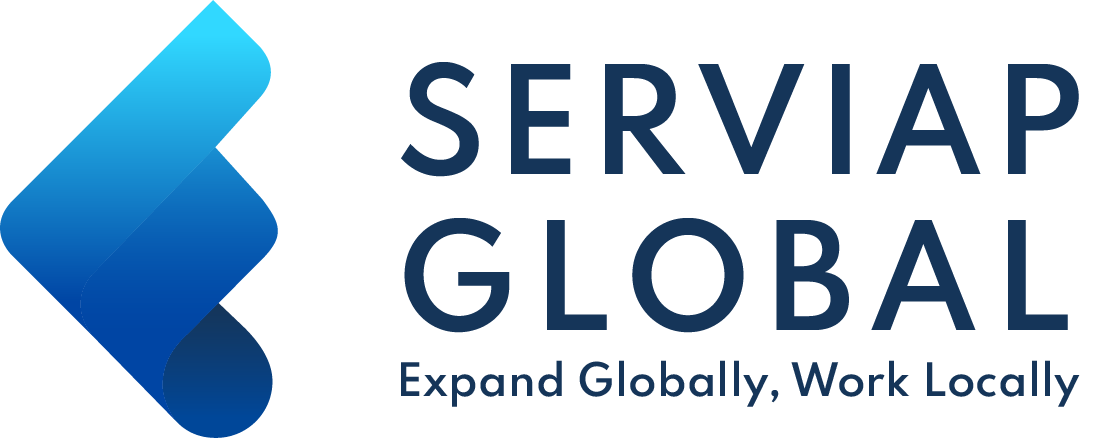Employer Of Record in New Zealand
We make it easy and painless to expand your business into New Zealand. Forget about dealing with local regulations, confusing tax laws and international payroll management. We take care of all that so you don't have to.

Accelerate your growth into New Zealand Compliantly and hassle-free
How we can help you expand in New Zealand
As your EOR in New Zealand we’d help you expand by hiring employees and running their payroll without establishing a local branch office or subsidiary.
Your candidate is hired by a PEO in New Zealand provider in accordance with local labor laws and can be onboarded in days instead of the months it typically takes. Shortly after, your new employee will be working for you, just like any other member of your team.


Expand to New Zealand with Serviap Global
Through our PEO and EOR services, you can hire qualified talent in your industry without the trouble of opening your own legal entity.
In just a few days, you can easily and safely build a presence in New Zealand being sure that your staff will be hired in compliance with labor and tax regulations.
Quick Facts
Currency:
New Zealand Dollar (NZD)
Capital:
Wellington
Payroll Cycle:
Monthly
Language(s):
English
New Zealand Country Facts
New Zealand is known for its sweeping natural beauty and as the place where “The Lord of the Rings” series was filmed. It is lesser-known for its cities, which are not densely populated as it only requires 20,000 residents to qualify as a city. To put this into perspective, sheep far outnumber the human population of the whole nation. New Zealand is very young compared to most other countries across the globe and therefore has a lot of potential. It’s made up of two main islands plus hundreds of smaller islands.The Economy
New Zealand has a highly developed free market and is a founding member of the International Labor Organization. Thus, It is an excellent choice for growing businesses. Most recently, new investments have favored the electronics, information technology, and telecommunication sectors.The Importance of Small and Medium-sized Companies
SMEs (businesses with 0-49 employees) makeup 99% of all businesses in New Zealand and employ 42.6% of the workforce. New Zealand’s small businesses recovery post-COVID-19 is impressive. SMEs bolster employment as well as the availability of goods and services.Population Characteristics
New Zealand’s 4.9 million people can boast of a 99% literacy rate. Commonly referred to as Kiwis, the people are known for their friendly and easy-going nature. New Zealand is enjoying an uptick in the people employed in science, research, and technology. This should make for plenty of innovation in the future coming from this small country.Economic Opportunities
New Zealand regularly ranks high both as a place to do business and for its livability. Furthermore, New Zealand has many natural resources. Natural gas, gold, and coal are some of the most valuable commodities.The government welcomes foreign investors and businesses, offering attractive incentives to encourage the small country to grow and develop into an incredible economy.Key Sectors of the National Economy
Some of the key sectors of the economy are:- Agriculture
- Biotechnology
- Information technology
- Wine-making
- Tourism
- Film making
- Auckland New Zealand’s largest city has the country’s busiest international airport.
- Wellington New Zealand’s capital is its second-largest city. It’s a business hub within the nation and has a vibrant arts scene.
- Christchurch Christchurch’s reconstruction following the devastating 2011 earthquake has earned its recognition as “the place to be” for work, study, and establishing a new business.
Technological Ecosystem
New Zealand’s tech and innovation ecosystem is growing year after year. Tech is New Zealand’s fastest-growing industry; overall, it ranks third in all the nation’s enterprises. Some of the biggest companies in New Zealand are technology based.Facilities for Foreign Investment
New Zealand keeps tax compliance simple, with zero social security, stamp duty, payroll, estate, or capital gains tax requirements. It’s welcoming to foreign direct investment (FDI) to increase employment. According to New Zealand government data, the United States is New Zealand’s third-largest source of FDI (after Australia and Hong Kong).Business Culture in New Zealand
- Respect Personal Space A friendly handshake and a smile are all that’s needed in a business setting.
- Keep It Real Kiwis are straight forward so don’t interpret their “straight shooter” frankness as harsh or rude.
- Communicate, Don’t Haggle Although in some countries haggling is one of life’s pleasures, not so in New Zealand. Instead, be upfront, honest, make reasonable requests and be ready to share your reasoning with new work partners.
New Zealand Gastronomy: regional and traditional cuisines
- Hangi The important Maori culture invented this dish which is distinctive for how the food is prepared. Vegetables are combined with any choice of meat; lamb, chicken, beef, or pork. Then, it’s all put in cloth sacks, baskets, and covered with aluminum foil. Then the combo is placed on hot stones in the bottom of a small pit, covered with a wet cloth, and left to cook into a mouthwatering, fall off the bone tender delicacy.
- Kina This is a popular food known as the hedgehog of the sea. It’s actually a type of sea urchin. The meat inside is eaten raw, but mind the spiky exterior! This dish is one of New Zealand’s oldest traditional foods.
- Fish and chips Inspired by the British, New Zealand love their fish and chips. Usually, the fish is kohi or snapper, and along with the chips (french fries), it’s often picked up from little shops, wrapped in paper, and eaten as an on-the-go meal or a picnic on the beach.
- Hokey pokey Kiwis are passionate about ice cream. They eat a traditional version called hokey pokey, which is vanilla ice cream with crunchy honeycomb mixed in
General Highlights
| Year | 2022 |
| Country | New Zealand |
| Capital | Wellington |
| Num. States / Province | 16 regions for local government purposes |
| Principal Cities | Auckland, Wellington, Christchurch |
| Language | English |
| Local Currency | New Zealand dollar $ |
| Major Religion | Christianity |
| Date Format | dd/mm/yyyy |
| Thousands Separator Format | 99,999,999.99 |
| Country Dial Code | +64 |
| Time Zone | NZDT UTC +13 & CHADT UTC +13:45 |
| Population | 4.8 million |
| Border Countries | A group of islands in the Pacific |
| Continental surface | 268,680 km2 |
| Fiscal Year | April 1 – March 31 |
| VAT % | 13% |
| Minimum Wage | $21.30 NZD/hour (approximately $14.62 USD |
| Taxpayer Identification Number Name in the country | IRD |
| Current President | Jacinda Kate Laurell Ardern |
Laws and Agencies that regulate labor relationships
| Laws | Brief Description |
| The Fair Work Act | The Fair Work Commission governs the Fair Work Act |
| Inland Revenue Department (IRD) | New Zealand tax code |
| Social assistance system | Universal and social assistance system Many of New Zealand’s benefits require residence of at least 10 years in country |
Key Tax and Labor Authorities
| Inland Revenue Department | This is the name of their revenue department |
| Employment Relations Act 2000 (The ER Act) | Instated after the repealed Employment Contracts Act 1991 (the “ECA”) |
Labor Contracts
| New Zealand Labour Law | Commonly referred to as “minimum code” |
| New Zealand Bill of Rights Act 1990 | This Act seeks to affirm, protect and promote human rights and fundamental freedoms in New Zealand and to affirm New Zealand’s commitment to the International Covenant on Civil and Political Rights |
| The International Labor Organization | Founding member |
| Work Hours | Traditionally 8:30 am to 5 pm with a half hour lunch break Totaling a 40 hour work week |
Payroll
Legal Benefits in New Zealand| Minimum Wage | $21.30 NZD/hour (approximately $14.62 USD |
| Overtime | None required |
| Christmas Bonus | None required |
| Accident Compensation Act 2001 | The ACC states, “Everyone in New Zealand who works and owns a business has to pay levies. The levies you pay provide cover for you and your employees if someone’s injured. We work with you to help you manage employee injuries, while rewarding you for having a safer workplace. |
| Vacations or PTO New Zealand Holidays Act | 30 days of paid vacation, including national holidays |
| Leaves of Absence | • Leaves of Absence Employees are paid for a couple of types of leave: • Sick leave – Up to 5 days a year (after being employed six consecutive months) • Bereavement leave – Up to 3 days • Maternity leave – None unless it’s included in the employment agreement. Instead, the government funds partial salaries for up to 14 weeks. |
| Over this amount | Not over this amount | Tax % on Excess |
| $0 | $14,000.00 | 10.5% |
| $14,000.01 | $48,000.00 | 17.5% |
| $48,000.01 | $70,000.00 | 30% |
| $70,000.01 and above | 33% |
| Taxable Gross Income | Tax Rate |
| Flat rate | 28% |
Public Holidays
Public holidays observed in New Zealand:| Date | Holiday Name |
| 1 January | New Year’s Day |
| 2 January | Day after New Year’s Day |
| 3 & 4 January | New Year Holiday |
| 24 January | Wellington Anniversary Day |
| 31 January | Auckland and Nelson Anniversary Days |
| 6 February | Waitangi Day |
| 7 February | Waitangi Day Holiday |
| 14 March | Taranaki Anniversary Day |
| 21 March | Otago Anniversary Day |
| Friday before Easter | Good Friday |
| Monday after Easter | Easter Monday |
Termination
Termination of an employment contract.| Type of Termination | Brief Description |
| Justified Dismissal | If an employee does something which destroys the trust of an employer, or any type of serious misconduct, the employer may terminate their employment. |
| Unjustified Dismissal | An “unjustifiably” dismissed employee is only considered as such if they file a claim stating why their termination wasn’t fair. |
| Voluntary Resignation | An employee is allowed to resign any time as long as the employment agreement is met. Which could mean handing in written and receiving a final paycheck. |
You might be interested in reading...
Your one-stop global hiring solution. Secure, reliable, compliant

Premium Support
No matter how big or small, we are ready to answer all your questions- anytime, anywhere.

Regional expertise
Our team of in-country experts help you navigate new markets and cultural nuances

Top-tier Benefits Packages
Great talent deserves great benefits. We offer a competitive range of benefits so that you only attract top-tier talent worldwide.

You remain 0% liable
Shift the worry from your shoulders to ours! We stay on top of regulations so you’re always 100% complaint with local laws
Contact us and start your business expansion today













